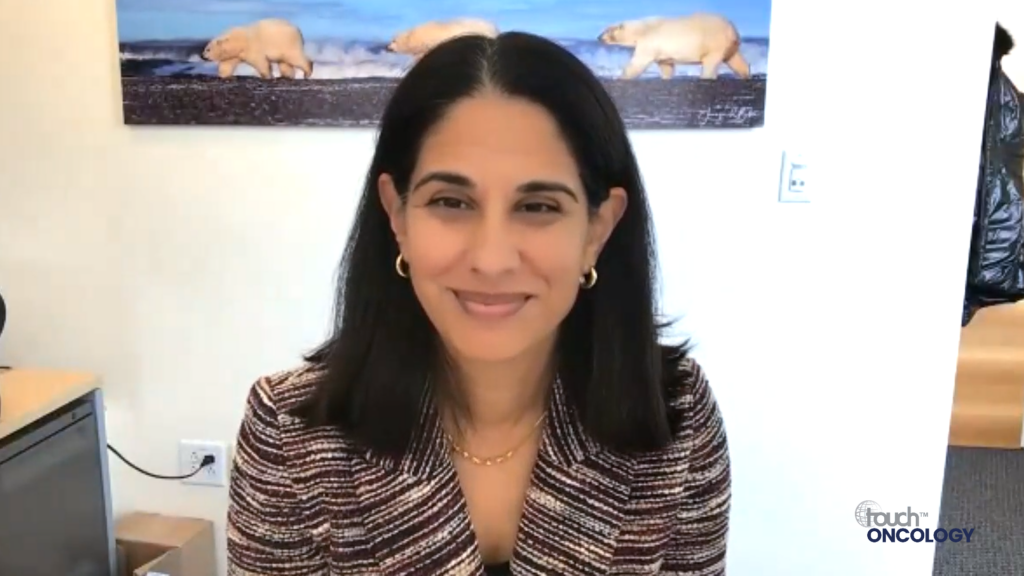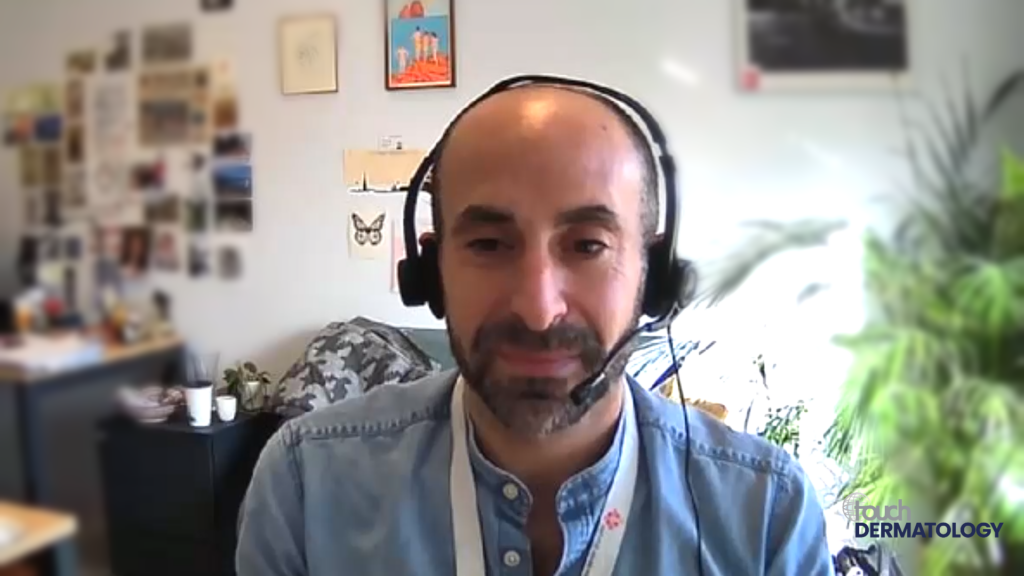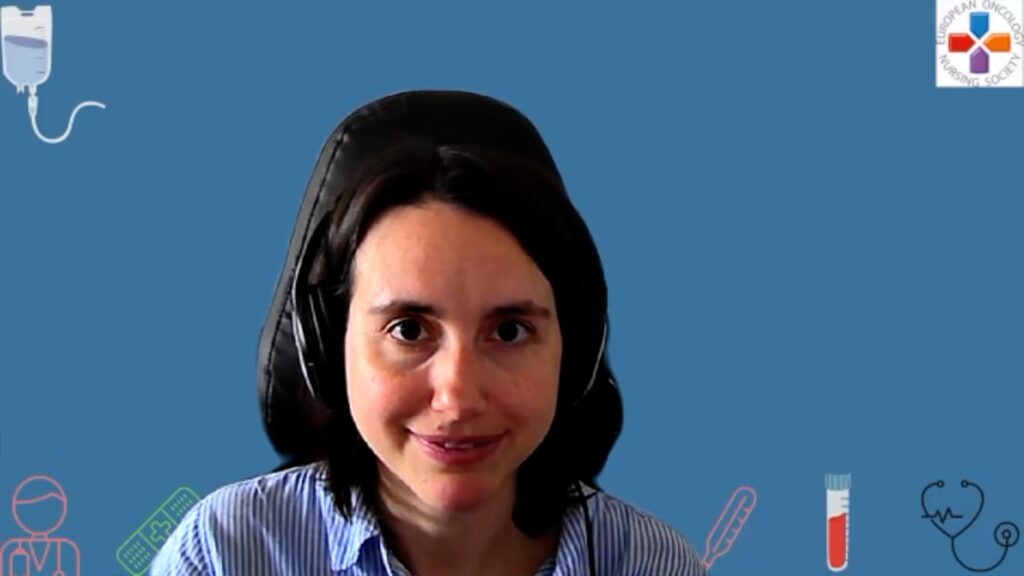touchONCOLOGY coverage of data presented at ASCO 2024:
touchONCOLOGY spoke with editorial board member Sara Tolaney (Dana-Farber Cancer Institute, Boston, MA, USA) to discuss her highlights from ASCO 2024 in the filed of breast cancer. In this interview, Dr Tolaney discusses the findings from the DESTINY-Breast06 (NCT04494425), postMONARCH (NCT05169567) and TBCRC 048 (olaparib expanded) (NCT02032823) offering her valuable insights into the impact the results could have on clinical practice.
Associated abstracts:
Curigliano G, et al. Trastuzumab deruxtecan (T-DXd) vs physician’s choice of chemotherapy (TPC) in patients (pts) with hormone receptor-positive (HR+), human epidermal growth factor receptor 2 (HER2)-low or HER2-ultralow metastatic breast cancer (mBC) with prior endocrine therapy (ET): Primary results from DESTINY-Breast06 (DB-06). ASCO Congress 2024, Abstract LBA1000
Kalinsky K, et al. Abemaciclib plus fulvestrant vs fulvestrant alone for HR+, HER2- advanced breast cancer following progression on a prior CDK4/6 inhibitor plus endocrine therapy: Primary outcome of the phase 3 postMONARCH trial. ASCO Congress 2024, Abstract LBA1000
Tung NM, et al. TBCRC 048 (olaparib expanded) expansion cohorts: Phase 2 study of olaparib monotherapy in patients (pts) with metastatic breast cancer (MBC) with germline (g) mutations in PALB2 or somatic (s) mutations in BRCA1 or BRCA2. ASCO Congress 2024, Abstract 1021
Disclosures: Dr Sara Tolaney has acted as a consultant for Aadi Bio, Artios Pharma, Arvinas, AstraZeneca, Bayer, BioNTech, Blueprint Medicines, Bristol Myers Squibb, Circle Pharma, Cullinan Oncology, CytomX Therapeutics, Daiichi Sankyo, eFFECTOR, Eisai, Eli Lilly, Genentech/Roche, Gilead, Hengrui USA, Incyte Corp, Jazz Pharmaceuticals, Menarini/Stemline, Merck, Natera, Novartis, Pfizer/SeaGen, Reveal Genomics, Sanofi, Sumitovant Biopharma, Systimmune, Tango Therapeutics, Umoja Biopharma, Zentalis and Zymeworks. Dr Tolaney has also received grant/research support from Genentech/Roche, Merck, Exelixis, Pfizer, Lilly, Novartis, Bristol Myers Squibb, Eisai, AstraZeneca, NanoString Technologies, Gilead, Seattle Genetics, OncoPep, Daiichi Sankyo and Menarini/Stemline; and travel support from Lilly, Sanofi, Gilead, Jazz, BioNTech and Pfizer.
This content has been developed independently by Touch Medical Media for touchONCOLOGY and is not affiliated with ASCO. Unapproved products or unapproved uses of approved products may be discussed by the faculty; these situations may reflect the approval status in one or more jurisdictions. No endorsement of unapproved products or unapproved uses is either made or implied by mention of these products or uses by Touch Medical Media or any sponsor. Views expressed are the speaker’s own and do not necessarily reflect the views of Touch Medical Media.
Click here for more content on breast cancer & for further ASCO 2024 highlights visit here.
Transcript
My name is Sara Tolaney. I’m a breast medical oncologist at Dana Farber Cancer Institute.
So I think this year at ASCO 2024, we saw some really exciting data come out, and I think there were three studies in the metastatic setting that do have implications for changes, I think, we’ll see in our practice that, will come from these data. So one of these trials was DESTINY-Breast06, and I think these were very highly anticipated data. This was a study that looked at trastuzumab deruxtecan or TDXD in patients as their first chemotherapy for metastatic hormone receptor positive disease. So these were patients who had metastatic hormone receptor positive breast cancer that had progressed on one or two prior lines of endocrine therapy in the metastatic setting and had either HER2 low or HER2 ultra low breast cancer. This is a new term, one that we’re not so used to seeing, which defines ultra low as being somewhere between and IHC one plus. So having a little bit of staining that’s not quite enough to be one plus staining. And this trial randomized patients to either get TDXD or standard of care chemotherapy where that standard of care could either be capecitabine or ataxane. And the primary endpoint was to look at progression free survival in the HER2 low population.
And in this study, we saw a a significant improvement in progression free survival going from about 8 months in the control arm to about 13 months in the TDXD arm. And so about a 5 month delta between the two arms, so I think very clinically meaningful.
And when you looked at the ultra low cohort, which, you know, in truth was a smaller cohort as a hundred and fifty patients, you saw really the identical progression free survival numbers. The only sort of caution I will note is that because this subgroup is smaller, the confidence intervals around that estimate are much larger. And in fact, the hazard ratio in the ultra low cohort did include one. And so I think, again, less precision around the the numbers there, but, clearly, very consistent data across the study.
And so from DESTINY-Breast06, I think my thoughts are that it does support use of TDXD as a first-line option when you’re moving to chemotherapy, but I think you always have to weigh risks and benefits of therapy. There were three deaths in this study from interstitial lung disease, and so I do think we keep that in mind. And so if you had a patient, for example, that may have bone only disease with very prolonged benefit to endocrine therapy, maybe you would think about capecitabine in that patient. But, otherwise, for others, I think mostly we would use TDXD based on these data.
Another trial that was presented at ASCO 2024 that I think does have implications on our practice was the postMONARCH study. This is the only phase III trial to look at the idea of continuation of CDK 4/6 inhibition beyond progression. We’ve seen several studies that have been presented to date as randomized phase II, but not a registrational intent phase III study. And so this study took patients who had progressed on an upfront CDK4/6 inhibitor, which could have been either palbociclib, abemaciclib, or ribociclib, though, you know, about two thirds of patients had had palbociclib, and so that was the majority of patients in this study. But, you know, about, almost a third had had ribociclib, but very few abemaciclib.
And so those patients were randomized to get fulvestrant placebo or fulvestrant abemaciclib with the primary endpoint being progression free survival in this study. And what we saw was that using abemaciclib post progression did improve progression free survival. It had a delta of about one month, so it went from 5.3 to 6 months with a hazard ratio of point seven three. So, again, it did suggest that continuing abemaciclib was beneficial. There were different results when the PFS was evaluated by blinded independent central review where, in fact, there was a more robust difference seen in terms of progression free survival.
And when you looked at the AORUS block for benefit, you could see that the patients who seem to derive larger benefits were the non-visceral disease patients.
And so I think my take on these data are that if you have someone who’s progressed on endocrine therapy and a CDK 4/6 inhibitor and that patient maybe had prolonged benefit to their CDK 4/6 inhibitor, doesn’t have a lot of visceral metastases, maybe this would be a good strategy to consider in that type of patient. You know, post CDK 4/6, we do have many options.
You know, if someone has a PI 3-K pathway alteration, you can use elbolicib or capivasertib. If they have an ESR1 mutation, you can use elacestrant.
But maybe for that patient who doesn’t have a PI 3-K pathway alteration and has proline benefit on upfront CDK and doesn’t have a lot of visceral disease, I think this becomes a really nice, option for that particular type of patient.
And then finally, I think one third, abstract that I thought can have implications on our practice was data that was presented from the TBCRC 048 (olaparib expanded) study where they looked at the use of olaparib in patients that were outside of just having germline, BRCA alteration. So they’re trying to look at patients who had other alterations and homologous recombination deficiency repair. And so they looked at somatic BRCA as well as germline PALB2. And we had seen data from these cohorts previously suggesting robust benefit, but then they went on to enroll separate validation cohorts to support that there is benefit in these populations.
So at ASCO, we saw data for these new cohorts of patients who had somatic BRCA or germline PALB2. And amongst the twenty four patients with germline PALB2, there was a, seventy six percent response rate. And amongst the thirty patients with, somatic BRCA alterations, there is a 37% objective response. So very robust activity in these patients with somatic BRCA and germline PALB2, and in my mind now validate the benefits of PARP inhibition in these populations.
And do suggest we shouldn’t be testing, for somatic BRCA and germline PALB2 in addition to knowing germline BRCA status in the metastatic setting and then considering PARP inhibition for this population.
So as you can see, a lot of exciting data that came out at ASCO this year, and I think these data will have implications for our practice, so really important to see.
Interviewer/Editor: Carla Junkier
Cite: Tolaney S. Breast cancer highlights: DESTINY-Breast06, postMONARCH, TBCRC 048. touchONCOLOGY, July 23 2024.














